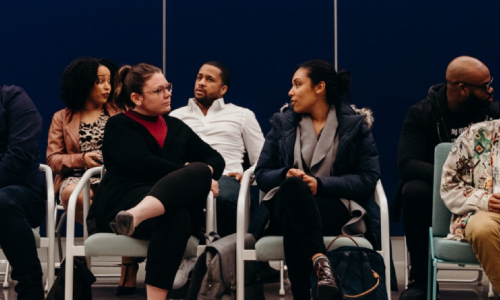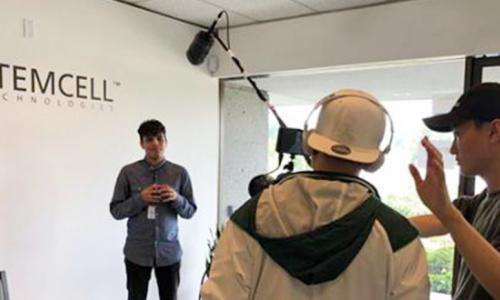
Today I want to write about saying goodbye. It's something I've done before (see post: "I'll See You Around"), but recent experiences have inspired me to shed some more light on the topic. While my previous post had more to do with "terminating" (yes, that's the actual word that we use) therapeutic relationships in a counselling context, I've had to say goodbye to a couple of work colleagues quite recently - for various reasons (don't worry, nobody got fired) and various degrees of permanence. So this post is about saying goodbye at work.
The reality is, saying goodbye is hard under any circumstance, and people tend to avoid doing it as a result. It may even be part of the reason I put off writing this post as long as I did. For a more thorough and personal exploration of why goodbyes suck, check the other post. The gist of it is that goodbyes are existential events. They remind us that everything is temporary, including relationships, and ultimately including life. To be reminded of our mortality - even on a level preceding awareness - is discomforting. So we avoid it. We cling to relationships, however insignificant they may be, to avoid that sense of finality.
I've had some less than ideal goodbye experiences with a couple of colleagues recently. I wouldn't say I botched them, but if I had it to do again, I'd probably have done more.
In one case an outgoing colleague ended up having to say a serious goodbye - her father died the same week she left the office (for a job in another department). Of course, she took some deserved time off, and there was a card and charity donation collection from the office. Still, knowing what a unique experience grief can be, I haven't gotten to a place of knowing how to comfortably respond as a co-worker. Maybe I'm not supposed to. Do I send an email? Make a phone call? In the end I didn't. That might sound cold, but my thought process went something like this: what that person really needs is time with and support from their family and close friends. What they probably don't need is a bunch of interruptions from co-workers who are trying to minimize their own sense of unease.
What I settled on was waiting for that colleague to return to work in their new position so I could express my condolence and offer my own meager words of support in person, and that seemed to work out okay. Still, I find myself wondering if I could have been more of a human in that process instead of thinking of myself first as a coworker.
My other office goodbye didn't go the way I would have liked simply due to an oversight of my own schedule. Essentially, I put off saying goodbye until my colleague's last day, and neglected to remember that I would be away at a conference that day. Said colleague was going on a pretty amazing journey to do some humanitarian work in East Asia - it would be a long trip, and an adventure for sure.
This particular colleague and I had shared the experience of having to commute about an hour to and from work. So, the last thing I said to her was "have a nice trip" - referring to the commute back home that day. I only realized afterwards that those words could have easily been interpreted as my final goodbye to her, which would be pretty rough - boiling 2 years of a working relationship down to 4 words? Not the best way to show your appreciation for someone.
In both cases, I thought about what I truly appreciated about my colleagues, and I shared my appreciation for them with them via email.
And that's the point I've been meaning to come to this whole time: appreciation.
Goodbyes are indeed uncomfortable and often distressful events. But they're also a wonderful opportunity to let a person know what you appreciate about them. Sharing appreciation is a habit that not many people are in the habit of doing regularly (and I include myself in that group), and that's a shame. But at the end of a relationship, a certain barrier is removed - maybe we feel more comfortable letting someone know how they impacted us if we know we won't be seeing them again, or as often.
It doesn't have to be complicated, or even insightful. All appreciation has to be is genuine. That's about as human an offering as you can make.















